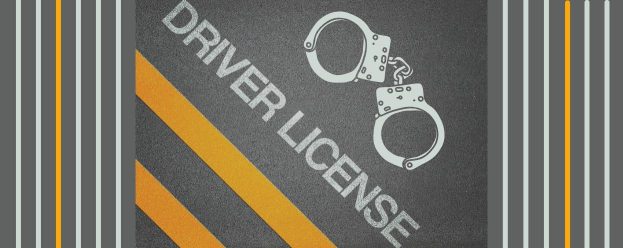15th Jul 2021

Estimated reading time: 4 minutes
On April 17, 2019 the Governor signed Executive Order 2019-10 which created the Michigan Joint Task Force on Jail and Pretrial Incarceration, to act in an advisory capacity, with the goal of developing ambitious, innovative, and thorough recommendations for changes in state law, policy, and appropriations to expand alternatives to jail, safely reduce jail admissions and length of stay, and improve the efficiency and effectiveness of Michigan’s justice systems.
According to the Task Force, traffic offenses accounted for one half of all criminal court cases in 2018. In that same year, almost 358,000 licenses were suspended and driving with a suspended license is the third most common charge resulting in being sentenced to serve jail time in Michigan. One of the recommendations of the Task Force was to eliminate suspending or revoking a person’s driver’s license as the punishment for actions that are not related to safe driving practices. The Joint Task Force recommended retaining license suspension or revocation as a punishment for people who are convicted of serious and unsafe driving offenses such as reckless driving, operating while intoxicated, and fleeing and eluding a police officer. The goal of the Task Force in eliminating the number of driver’s license suspensions and revocations would eventually lead to a reduction in jail admissions and would help eliminate obstacles to offenders who are trying to re-enter the workforce.
On October 1, 2021, Public Act 376 of 2020 will become effective and will implement these goals of the Task Force by eliminating license suspensions for certain violations of the law that are unrelated to dangerous driving. The new law will repeal the requirement that the Secretary of State suspend the license of a person convicted of certain drug-related offenses under the Public Health Code. It will also repeal mandatory license suspensions for failing to pay child support or comply with a parenting time order under the Support and Parenting Time Enforcement Act. This is good news to those individuals that have had their licenses suspended based on a drug crime conviction or failure to pay child support.
In addition, the Act will amend the Michigan Vehicle Code to remove certain provisions that require or allow the Secretary of State to suspend, revoke, restrict, deny, or refuse to renew a person’s driver’s license for various offenses related to vehicle code violations. The Act will eliminate current license sanctions for the following offenses:
*Having two or more moving violations in the previous three years.
*Failing to answer citations for three or more parking violations, or two or more for citations that involve parking for persons with disabilities.
*Failing to appear in response to a citation or to comply with an order or judgment, including failing to pay all fines, costs, fees, and assessments, for several civil infractions under the code.
*Failing to appear in response to a citation or to comply with an order or judgment, including failing to pay all fines, costs, fees, and assessments, for state civil infractions.
*Failing to pay a driver responsibility fee or engage in the alternative workforce training.
*Failing to report a change of address, falsely reporting a change of address, or reporting a change of address for someone else without their permission.
*Perjury or making a false certification to the Secretary of State.
*Fraudulently altering or forging documents pertaining to motor vehicles.
*Failing to provide proof of insurance.
*Unlawful use of a driver’s license (among other things, altering a license, having a fake or altered license, letting someone else use it or using someone else’s).
*Making a false report of a crime or emergency at a school (e.g., a false school bomb threat).
*Using a fake ID to buy alcohol as a minor, purchasing alcohol as a minor, being a minor in possession of alcohol.
*Selling alcohol to a minor.
*Open alcohol in a vehicle.
*Using a motor vehicle without permission of its owner, but also without the intent to steal it (joyriding).
*Malicious destruction with a vehicle of trees, shrubs, grass, turf, plants, crops, or soil.
*Committing motor fuel theft.
By eliminating driver’s license suspensions and revocations for these offenses, people faced with these violations will no longer be challenged with the loss of their driving privileges which will help those who are trying to re-enter the workforce by remaining able to lawfully operate a vehicle to get to and from work. This should also reduce the overall number of people operating with a suspended driver’s license and ultimately reduce the related number of incarcerations for these offenses.
Related Links


